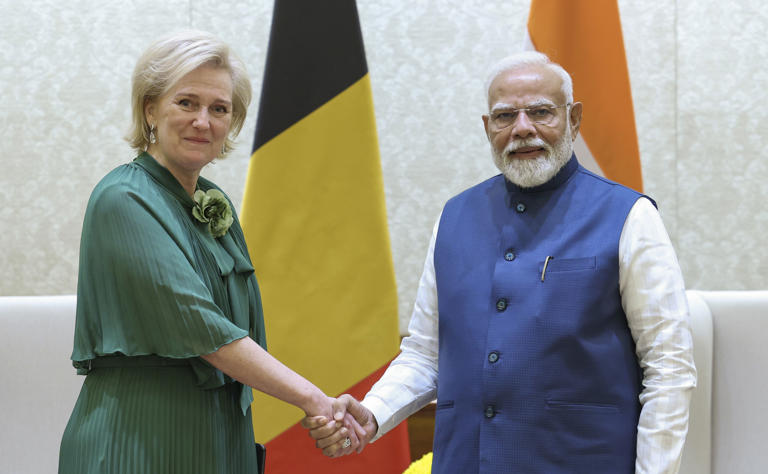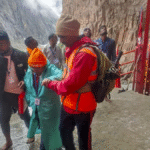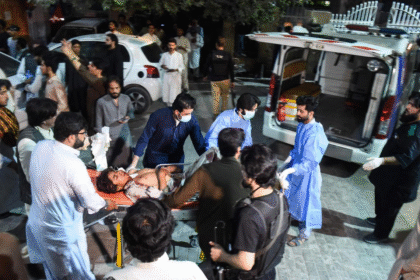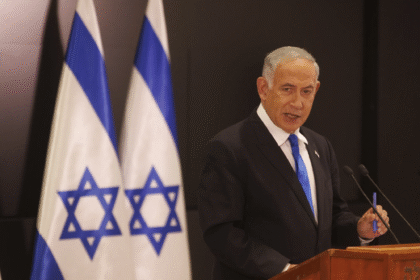When a Belgian Foreign Honour Sparked a Legal Battle in Indian Bureaucracy
New Delhi: Earlier this month, Narendra Modi – already the Indian prime minister with the most awards from foreign governments, a record enabled by earlier incumbents having discouraged the practice — received an honour from a 27th country, Namibia. The milestone was widely promoted across media outlets, presenting Modi’s string of awards as a marker of his global stature.
Yet nearly two decades ago, a similar gesture from a foreign government had prompted a prolonged legal and constitutional debate in India. The recipient then was Sonia Gandhi, then chairperson of the United Progressive Alliance and head of the National Advisory Council.
On November 11, 2006, Belgian Prime Minister Guy Verhofstadt conferred upon Gandhi the title of Grand Officer of the Order of Leopold. The award citation praised her “constructive nationalism” and her efforts to promote a multicultural and tolerant Indian society. The Order of Leopold, named after Belgium’s first monarch, is one of the highest distinctions granted by the Belgian state.
The honour, however, soon sparked a political controversy. In June 2007, President A.P.J. Abdul Kalam invoked Article 103(2) of the constitution and referred the matter to the Election Commission (EC) to assess whether Gandhi’s acceptance of the foreign honour constituted grounds for disqualification from parliament.
The trigger was a petition submitted by Kerala-based journalist P. Rajan, who argued that the honour violated Article 102(1)(d) of the constitution. The clause describes one of the grounds for disqualification from parliament as being “under any acknowledgment of allegiance or adherence to a foreign state”.
The matter gained renewed attention in February 2008 when the EC, by a 2:1 majority, issued a notice to Gandhi seeking her response. Chief election commissioner N. Gopalaswami and election commissioner Navin Chawla supported the move, while the third member, S.Y. Quraishi, dissented.
According to press reports from that time, Rajan alleged that Gandhi, by accepting the award, had automatically become a member of the Association of the Order of Leopold. He also pointed to Article 1 of the Association’s charter, which he claimed mandated “eternal devotion to Belgium and the monarchy”.
However, the Association’s website clarified that membership was not automatic. To join, one had to not only receive the award but also submit an application form.
Asserting that the petition was a “motivated campaign”, then-Congress party spokesperson Abhishek Singhvi noted that it was a “decoration”, not a title, and does not violate Article 18 of the constitution, which abolishes titles, and prohibits the Indian state from conferring them as well as Indian citizens from accepting them from foreign states.
In April 2008, media reports noted that the EC had sought the views of the Ministry of External Affairs, and subsequently requested another response from Rajan.
Rajan reiterated his argument, this time claiming that Article 113 of the Belgian constitution had described the honour as a “title”.
However, the Belgian constitution’s Article 113 merely stated, “The King may confer titles of nobility, without ever having the power to attach privileges to them”. As this 2024 article from the Brussels Times shows, the king confers titles of nobility like baron and baroness, which are different from “distinctions” like the Grand Officer of the Order of Leopold.
In 2009, the EC concluded its inquiry and conveyed its findings to President Pratibha Patil. Once again, the decision was by majority, but this time chief election commissioner Gopalaswami dissented. The majority view was that there were no grounds for disqualification.
On May 16, 2009, Patil ruled that Gandhi had not incurred any disqualification under Article 102(1)(d), effectively closing the matter at the executive level.
However, the legal battle did not end there.
In December 2009, Janata Party president Subramanian Swamy filed a petition in the Delhi high court, urging it to direct the EC to conduct a formal inquiry. The court dismissed the plea.
In its order, the division bench cited a note verbale from the Belgian foreign ministry to the Ministry of External Affairs dated March 12, 2008. The note clarified that the Grand Officer de l’Ordre de Léopold was “an honour, and not at all a title of nobility”.
It also noted that while recipients could become members of the private charity Société de l’Ordre de Léopold if they wished, “Mrs Gandhi has not expressed the wish to become a member of this society and she is not a member”.
On January 22, 2010, another bench of the Delhi high court reaffirmed its decision in a separate petition filed by Rajan. Echoing its earlier reasoning, the court observed, “The Election Commission cannot sit over an appeal over the unambiguous clarification given by the Government of Belgium.” It dismissed the petition and imposed a fine of Rs 10,000 on Rajan.
He then approached the Supreme Court with a public interest litigation (PIL). But when the case came up for hearing on May 14, 2010, Chief Justice S.H. Kapadia dismissed it outright.
The court hinted that the petition fell into the category of “frivolous” PILs clogging the judicial system and warned that such cases could invite stronger penalties.








